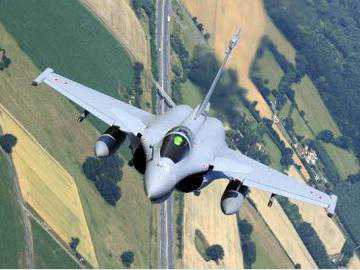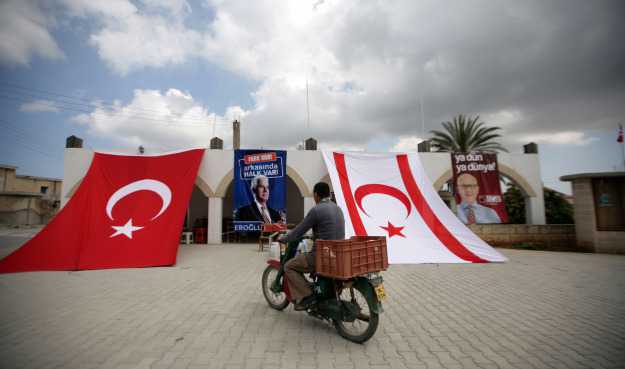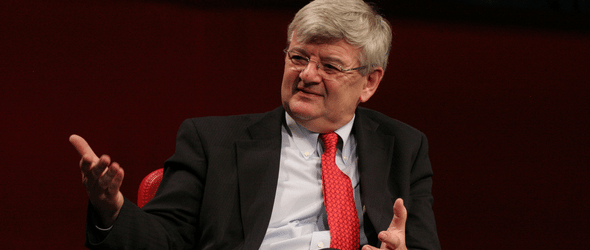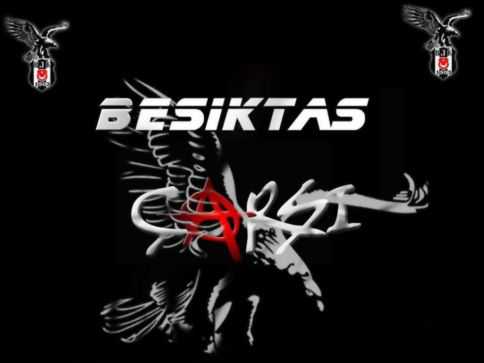There has been no magic hand guiding Turkey and Russia as they form the axis of a new political formation. Turkey, once the ‘sick man of Europe’, is now ‘the only healthy man of Europe’, notes Eric Walberg.
The neocon plan to transform the Middle East and Central Asia into a pliant client of the US empire and its only-democracy-in-the-Middle-East is now facing a very different playing field. Not only are the wars against the Palestinians, Afghans and Iraqis floundering, but they have set in motion unforeseen moves by all the regional players.
The empire faces a resurgent Turkey, heir to the Ottomans, who governed a largely peaceful Middle East for half a millennium. As part of a dynamic diplomatic outreach under the Justice and Development Party (AKP), Turkey re-established the Caliphate visa-free tradition with Albania, Jordan, Lebanon, Libya and Syria last year. In February Turkish Culture and Tourism Minister Ertugrul Gunay offered to do likewise with Egypt. There is “a great new plan of creating a Middle East Union as a regional equivalent of the European Union” with Turkey, fresh from a resounding constitutional referendum win by the AKP, writes Israel Shamir.
Turkey also established a strategic partnership with Russia during the past two years, with a visa-free regime and ambitious trade and investment plans (denominated in rubles and lira), including the construction of new pipelines and nuclear energy facilities.
Just as Turkey is heir to the Ottomans, Russia is heir to the Byzantines, who ruled a largely peaceful Middle East for close to a millennium before the Turks. Together, Russia and Turkey have far more justification as Middle Eastern “hegemons” than the British-American 20th century usurpers, and they are doing something about it.
In a delicious irony, invasions by the US and Israel in the Middle East and Eurasia have not cowed the countries affected, but emboldened them to work together, creating the basis for a new alignment of forces, including Russia, Turkey, Syria and Iran.
Syria, Turkey and Iran are united not only by tradition, faith, resistance to US-Israeli plans, but by their common need to fight Kurdish separatists, who have been supported by both the US and Israel. Their economic cooperation is growing by leaps and bounds. Adding Russia to the mix constitutes a like-minded, strong regional force encompassing the full socio-political spectrum, from Sunni and Shia Muslim, Christian, even Jewish, to secular traditions.
This is the natural regional geopolitical logic, not the artificial one imposed over the past 150 years by the British and now US empires. Just as the Crusaders came to wreak havoc a millennium ago, forcing locals to unite to expel the invaders, so today’s Crusaders have set in motion the forces of their own demise.
Turkey’s bold move with Brazil to defuse the West’s stand-off with Iran caught the world’s imagination in May. Its defiance of Israel after the Israeli attack on the Peace Flotilla trying to break the siege of Gaza in June made it the darling of the Arab world.
Russia has its own, less spectacular contributions to these, the most burning issues in the Middle East today. There are problems for Russia. Its crippled economy and weakened military give it pause in anything that might provoke the world superpower. Its elites are divided on how far to pursuit accommodation with the US. The tragedies of Afghanistan and Chechnya and fears arising from the impasse in most of the “stans” continue to plague Russia’s relations with the Muslim Middle East.
Since the departure of Soviet forces from Egypt in 1972, Russia has not officially had a strong presence in the Middle East. Since the mid- 1980s, it saw a million-odd Russians emigrate to Israel, who like immigrants anywhere, are anxious to prove their devotion and are on the whole unwilling to give up land in any two-state solution for Palestine. As Anatol Sharansky quipped to Bill Clinton after he emigrated, “I come from one of the biggest countries in the world to one of the smallest. You want me to cut it in half. No, thank you.” Russia now has its very own well-funded Israel Lobby; many Russians are dual Israeli citizens, enjoying a visa-free regime with Israel.
Then there is Russia’s equivocal stance on the stand-off between the West and Iran. Russia cooperates with Iran on nuclear energy, but has concerns about Iran’s nuclear intentions, supporting Security Council sanctions and cancelling the S-300 missile deal it signed with Iran in 2005. It is also increasing its support for US efforts in Afghanistan. Many commentators conclude that these are signs that the Russian leadership under President Dmitri Medvedev is caving in to Washington, backtracking on the more anti-imperial policy of Putin. “They showed that they are not reliable,” criticised Iranian Defence Minister Ahmad Vahidi.
Russia is fence-sitting on this tricky dilemma. It is also siding, so far, with the US and the EU in refusing to include Turkey and Brazil in the negotiations over Iran’s nuclear programme. “The Non-Aligned countries in general, and Iran in particular, have interpreted the Russian vote as the will on the part of a great power to prevent emerging powers from attaining the energy independence they need for their economic development. And it will be difficult to make them forget this Russian faux pas,” argues Thierry Meyssan at voltairenet.org.
Whatever the truth is there, the cooperation with Iran and now Turkey, Syria and Egypt on developing peaceful nuclear power, and the recent agreement to sell Syria advanced P-800 cruise missiles show Russia is hardly the plaything of the US and Israel in Middle East issues. Israel is furious over the missile sale to Syria, and last week threatened to sell “strategic, tie-breaking weapons” to “areas of strategic importance” to Russia in revenge. On both Iran and Syria, Russia’s moves suggest it is trying to calm volatile situations that could explode.
There are other reasons to see Russia as a possible Middle East powerbroker. The millions of Russian Jews who moved to Israel are not necessarily a Lieberman-like Achilles Heel for Russia. A third of them are scornfully dismissed as not sufficiently kosher and could be a serious problem for a state that is founded solely on racial purity. Many have returned to Russia or managed to move on to greener pastures. Already, such prominent rightwing politicians as Moshe Arens, political patron of Israeli Prime Minister Benjamin Netanyahu, are considering a one-state solution. Perhaps these Russian immigrants will produce a Frederik de Klerk to re-enact the dismantling of South African apartheid.
Russia holds another intriguing key to peace in the Middle East. Zionism from the start was a secular socialist movement, with religious conservative Jews strongly opposed, a situation that continues even today, despite the defection of many under blandishments from the likes of Ben Gurion and Netanyahu. Like the Palestinians, True Torah Jews don’t recognise the “Jewish state”.
But wait! There is a legitimate Jewish state, a secular one set up in 1928 in Birobidjan Russia, in accordance with Soviet secular nationalities policies. There is nothing stopping the entire population of Israeli Jews, orthodox and secular alike, from decamping to this Jewish homeland, blessed with abundant raw materials, Golda Meir’s “a land without a people for a people without a land”. It has taken on a new lease on life since the collapse of the Soviet Union. Russian President Dmitri Medvedev made an unprecedented visit this summer, the first ever of a Russian (or Soviet) leader and pointed out the strong Russian state support it has as a Jewish homeland where Yiddish, the secular language of European Jews (not sacred Hebrew), is the state language.
There has been no magic hand guiding Turkey and Russia as they form the axis of a new political formation. Rather it is the resilience of Islam in the face of Western onslaught, plus — surprisingly — a page from the history of Soviet secular national self-determination. Turkey, once the “sick man of Europe”, is now “the only healthy man of Europe”, Turkish President Abdullah Gul was told at the UN Millennium Goals Summit last week, positioning it along with the Russian, and friends Iranian and Syrian to clean up the mess created by the British empire and its “democratic” offspring, the US and Israel.
While US and Israeli strategists continue to pore over mad schemes to invade Iran, Russian and Turkish leaders plan to increase trade and development in the Middle East, including nuclear power. From a Middle Eastern point of view, Russia’s eagerness to build power stations in Iran, Turkey, Syria and Egypt shows a desire to help accelerate the economic development that Westerners have long denied the Middle East — other than Israel — for so long. This includes Lebanon where Stroitransgaz and Gazprom will transit Syrian gas until Beirut can overcome Israeli-imposed obstacles to the exploitation of its large reserves offshore.
Russia in its own way, like its ally Turkey, has placed itself as a go-between in the most urgent problems facing the Middle East — Palestine and Iran. “Peace in the Middle East holds the key to a peaceful and stable future in the world,” Gul told the UN Millennium Goals Summit — in English. The world now watches to see if their efforts will bear fruit.
Eric Walberg writes for Egypt’s Al-Ahram Weekly. You can reach him at .
, 30.09.2010
 The Turkish and Chinese air forces secretly participated in a military drill in Konya as part of the “Anatolian Eagle” war games, prompting a reaction from Washington, daily Taraf reported Thursday.
The Turkish and Chinese air forces secretly participated in a military drill in Konya as part of the “Anatolian Eagle” war games, prompting a reaction from Washington, daily Taraf reported Thursday.





